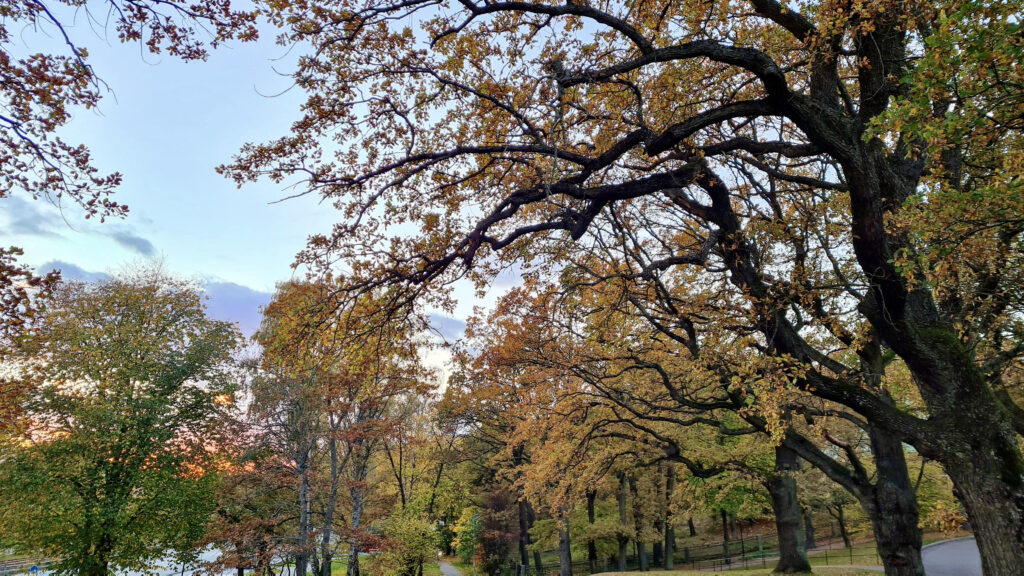New agricultural methods to fight climate change
By Ingemar Pongratz

Nacka Church by Ingemar Pongratz
The agricultural sector is a key economic driver in Europe and worldwide. The agricultural sector output contributes with 414 billion EUR to the EU economy. Of this economic output 53% is derived from the farming (crops, horticulture etc) sector and 40% is derived from the animal sector (Eurostat). The economic importance of food production is considerable. In addition, the fact that food is a vital commodity to sustain life and health (Eurostat).
Furthermore, the agricultural sector has key roles in preserving open landscapes, protecting biodiversity, and combating climate change. However, the agricultural sector is associated with considerable unwanted effects as well. In fact, the agricultural sector is a major source for greenhouse gases (GHG) such as methane (CH4) and nitric oxide (N2O). In addition, pesticides and fertilisers represent a major risk for wildlife, pollinators, and climate as well.
In addition, the agricultural sector represents an excellent opportunity to reduce anthropogenic gas concentrations in the atmosphere, in particular CO2. Plants incorporate CO2 from the atmosphere and thus reduce CO2 levels. In fact, European and International authorities are counting on this ability to reduce CO2 levels and mitigate climate change
However, to reach a situation where agriculture reduces CO2 levels in the atmosphere from today’s a situation where agriculture contributes to global warming will require massive efforts. Fundamentally new growing concepts, new strategies in animal husbandry and new fertilisers or other chemicals need to be introduced into the agriculture sector. These solutions need to be safe for humans, animals and climate. Therefore, new methods are required that use new safe solutions possible in combination with reduced utilization of herbicides and fertilisers. The EU has recently announced that they will provide 320 million EU to support the transition towards healthy soils across the EU (www.euractive.com)
Will this shift be possible? New agricultural methods to fight climate change are required. Through the European Green Deal the EU has committed considerable amounts of funding for this purpose. In addition, the Horizon Europe research and innovation scheme has identified Soil Health as a key priority and will integrate research efforts in this area through the Soil Health Mission. In fact, soil degradation is currently an EU wide problem. The European Commission has estimated that 60-70% of the European Soils is unhealthy. The costs for this problem is estimated to close to 50 billion Euros (www.euractive.com). In addition, the European Commission is counting on new farming methodologies, so called carbon farming. In short, carbon farming aims to increase the levels of organic matter (roots, bacteria, organic compounds, etc) in the soil. This will improve soil health and reduce need for example fertilisers. However, previous efforts has shown that agricultural productivity is also reduced (www.bbc.com).
Still, the European Farm to Fork strategy promotes new business strategies based on carbon farming methods.
In addition, there European Commission has presented plans where farmers would be able to benefit financially from the CO2 they are able to trap. This could through a CO2 trading scheme where trapped CO2 quotas could be sold to other CO2 emitters. This will provide a new source of revenue for European farmers (Farm to Fork Strategy).
Still, new research and new innovative solutions are required before the EU can count on agriculture ability to reduce CO2 from the atmosphere and at the same retain agricultural productivity.
Ingemar Pongratz is founder of Fenix Scientific / Pongratz Consulting. We help universities and other organization to apply for public funding for projects from European sources. In addition, Ingemar Pongratz is co-founder of Letavis AB. We have developed new solutions for the agricultural sector to speed up the transitions towards sustainable food production. Please contact us through the online contact form to discuss possibilities and collaboration
Or of you need support to apply for EU funds.

Alta 2021 by Ingemar Pongratz
